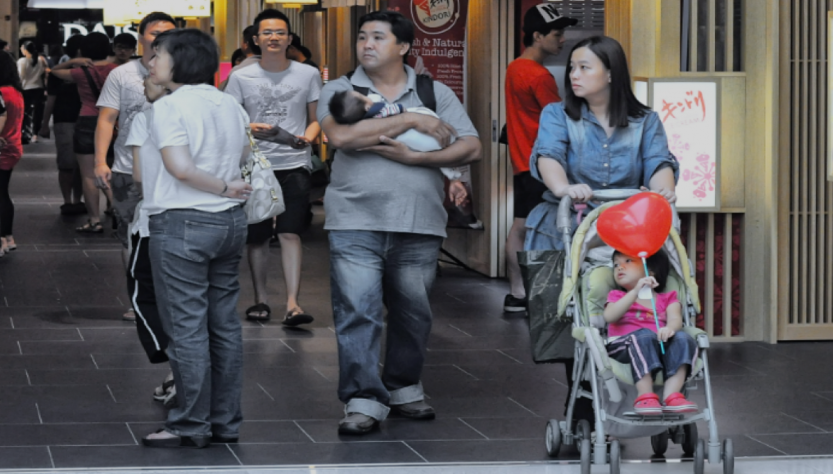Malaysia Population Research Hub

From the situational analysis and population perception data, the socio-economic landscape of Malaysia in 2030 will be defined by the following trends.
The nation’s ultimate goal from the socio-economic perspective is to become a high-income nation and build healthy, resilient, self-determining families, while meeting international commitments and goals such as the U.N. Sustainable Development Goals of 2030, which promotes inclusiveness and equality.
In the recent Family Wellbeing Index report 2016, the main areas of weakness that requires more attention are family economy, family health, housing & environment, and family and digital technology.
Family Wellbeing Index, Malaysia, 2016

Source: IKK 2016
The trends in the previous section illustrated possible futures for Malaysian families. While it is impossible to predict the future, it is, however, possible to determine what the vision that the future should hold. The current family-related policies in Malaysia provide the guiding principles.
The National Family Policy Malaysia is a policy that prioritises the family perspective in all socio-economic development efforts to ensure quality generations. Its goal is to develop prosperous, healthy, and resilient families to ensure social stability. The National Family Policy Malaysia is founded on the following eight principles: (A) Each family has its own inherent strengths and is responsible for the survival of future generations; (B) Families are responsible for nurturing and internalisation of positive family values; (C) Diverse family structures create differing needs; (D) Strong family relationships, culture of sharing resources and mutual responsibilities ensure family well-being; (E) Knowledge and information as the basis for family well-being (K-family); (F) Family-friendly legislations, policies, and programmes; (G) Family members have the basic right to protection and self-dignity; (H) Employers’ commitment to ensure family well-being.
The National Social Policy is a social development policy based on good values and the improvement of human potential to achieve unity and social stability, national resilience and the wellbeing of a progressive and robust Malaysian society. The policy’s objective is to ensure that every individual, family and community, regardless of ethnicity, religion, culture, gender, political affiliation and regions can participate and contribute to national development and achievement of wellbeing on an ongoing basis. This objective can be achieved through: (A) Ensuring that the basic needs of the individual, family, and community are fulfilled; (B) Building and empowering human beings throughout their lives; (C) Strengthening and developing social support systems and services; (D) Generating multi-sector synergies.
The National Policy on Women is the continuation of the National Policy on Women that was enacted in 1989 with regard to the issues, opportunities, challenges and environments at present and in the near future. The policy aims to realize the government’s aspiration to develop human capital that is competitive and resilient by producing knowledgeable and visionary women whom have creativity, innovation, and moral values. The National Policy on Women was enacted based on the principle of non-gender-based discrimination.
The National Child Policy covers the rights of survival, protection, development and participation of children in order to enjoy the opportunity and space to achieve holistic development in a conducive environment. Under the policy’s ‘Growth’ strategy, emphasis is placed particularly on creating a child-friendly environment that is conducive for optimum development of children.
The National Policy for Older Persons recognizes the elderly as citizens from different backgrounds and experiences, whom have the rights to be respected, to enjoy a prosperous life and can continue contributing to the development of the country. It recognises the need to create an older community that is independent, dignified and respected by optimizing their potential through healthy aging, positivity, productivity and support to enhance the quality of living in development of the country. One of the objectives under the policy is to develop a caring society towards the phenomenon of ageing and enable the community to manage the transition of ageing.
The Disabled Persons Policy forms the basis of rights equality and opportunities for disabled people to participate fully in society. This also gave importance to the rights of humanity such as glory, honour and freedom to enable them to live independently. Under the ‘Support Services’ strategy, emphasis is given to strengthen mechanisms of support services that are appropriate to the needs of disabled people.
The principles behind the National Family Policy Malaysia were clearly founded on the principles of self-reliance and self-determination. The Malaysian family is to be resilient against the changing environment, and is fully equipped to ensure the success of each future generation through knowledge acquisition. The diversity of each Malaysian family necessitates that each family determine the best course of action for itself, in order to achieve its aspirations. Family solidarity is strong, and each member supports the other in order to ensure the overall wellbeing of the family. In addition, a conducive labour market that prioritizes the wellbeing of the family is also needed. The remaining policies, although less focused on the family, leaves no doubt that that an equitable, non-discriminatory, and family centric approach is desired, be it for women, children, older persons, or persons with disabilities.